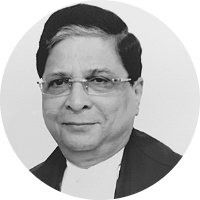Judicial Relevance of Parliamentary Report
Kalpana Mehta v Union of India
The Court held that there can be limited reliance placed on a Parliamentary Standing Committee Report during judicial proceedings.
Decided
Parties
Petitioner: Kalpana Mehta; Nalini Bhanot; Gramya Resource Centre for WomenMinistry of Health and Welfare; Drug Controller General, Central Drugs Standard Control Organisation; ICMR; Andhra Pradesh Directorate of Health Services; Gujarat Department of Public Health and Family Welfare; Path; Glaxosmithkline Asia Pvt. Ltd.; MSD Pharmaceutical Pvt. Ltd; Christian Medical College; State of Telangana
Lawyers:
Case Details
Case Number: WP (C) 558/2012
Next Hearing:
Last Updated: October 25, 2021
Key Issues
Can the Supreme Court refer to and rely on a report of the Parliamentary Standing Committee under Article 32 or Article 136 of the Constitution?
Case Description
On 9th May, the Court produced three separate opinions:
- Majority opinion by CJI Dipak Misra on behalf of himself and Justice A.M. Khanwilkar
- Minority opinion by Justice D.Y. Chandrachud on behalf of himself and Justice A.K. Sikri
- Minority opinion by Justice Ashok Bhushan
Ms Kalpana Mehta and SAMA – Resource Group for Women and Health filed two Public Interest Litigation (PIL) in 2012 for de-licensing two cervical vaccines due to alleged irregularities in clinical trials. There were reports of people dying due to the after-effect of these two vaccines – Gardasil and Cervarix, manufactured by Merck Sharp and Dohme and GlaxoSmithKline Plc.
The 81st Parliamentary Standing Committee (PSR) on Health and Family Welfare in their December 2014 Report had found grave irregularities in clinical trials for these vaccines. The report also recorded irregularities in obtaining consent from the clinical trial subjects and the deviation from various established protocols.
When the Standing Committee Report was brought to the notice of the Court, a question arose whether the Court can rely on a report of the Parliamentary Standing Committee and issue directions under Article 32. The drug companies argued that using PSRs to issue judicial direction violates freedom of speech and expression of the Members of Parliament under Article 105. It also violates Article 121 which prohibits the court from inquiring into parliamentary proceedings.
On the question of using PSRs as an external aid of interpretation to issue judicial directions, a 2 judge-bench comprising Justices Dipak Misra and Rohinton Nariman observed that the issue involves a substantial question of law relating to constitutional interpretation. The matter was referred to a Constitution Bench.





